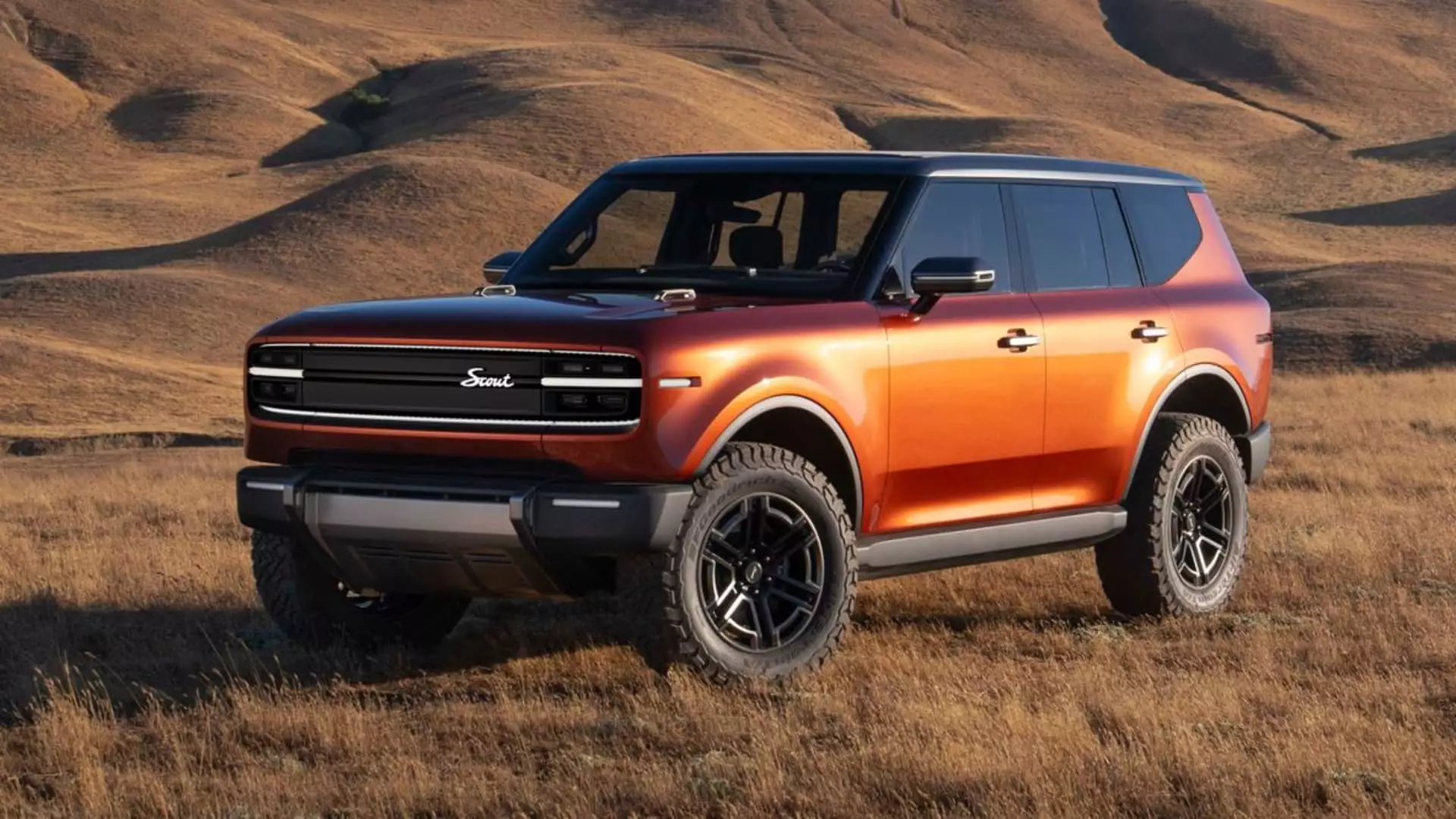In an aggressive move to make a mark in the electric vehicle (EV) market, Scout Motors has resurfaced with a bold vision. Originally established in the early 1960s, the Scout name held a nostalgic place in American automotive history but faded from existence by the end of the 1980s. With Volkswagen’s financial backing, Scout aims to reinvent itself for the modern era by launching a lineup of electric vehicles. The organization’s strategy appears to pivot on accommodating the current market’s demand as slow EV adoption becomes evident. This led Scout to announce a fresh portfolio that will now include plug-in hybrid electric vehicles (PHEVs), particularly extended-range electric vehicles (EREVs).
CEO Scott Keogh explained that this strategic pivot was born out of pragmatism. The decision to embrace EREVs—a combination of electric motors and traditional internal combustion engines—was driven by a desire to remain adaptable in a fluctuating automotive landscape. This hybrid solution serves dual purposes: it not only caters to environmentally conscious consumers but also reduces range anxiety associated with fully electric models. “This allows us to introduce the electrification of mobility while also providing a safety net,” Keogh stated confidently, portraying the brand’s commitment to innovation and adaptability.
Unlike traditional internal combustion engine vehicles, the EREVs enable consumers to explore electric driving with the reassurance of having a backup power source. This innovative addition sets Scout apart from many other newcomers in the EV space that have focused exclusively on all-electric models. Keogh emphasized that despite this pivot, there are no plans to reintroduce completely traditional gasoline-powered vehicles.
Scout’s ambitions extend well into the U.S. automotive market, targeting two lucrative vehicle segments: a full-size pickup truck and a large SUV. These models are strategically poised to capture approximately 40% of U.S. sales, predominantly in high-margin categories known to yield attractive profit margins. The anticipated production facility in South Carolina reflects Scout’s robust financial and operational strategy, with a staggering $2 billion investment aimed at achieving an annual output of 200,000 vehicles.
Profitability is a key focus for Scout, aiming to break even operationally within the first full year of vehicle production. This goal puts the company in a favorable position compared to other EV startups like Rivian and Lucid, which have faced substantial financial losses and production hurdles. Keogh regards this potential success as a necessary benchmark in the rapidly evolving EV market, where many firms have struggled amid high expenditures and inflationary pressures.
Scout’s initial offerings, the Traveler SUV and Terra pickup truck, are designed not just to appeal to enthusiasts of off-road vehicles but to fit seamlessly into the evolving landscape of modern transportation. With competitive pricing expected between $50,000 and $60,000, the vehicles are positioned effectively against competitors like Ford’s Bronco and other established brands. Although the expected range is approximately 300 miles for the fully electric versions and over 500 miles for the range-extender models, Scout asserts that performance will remain a key differentiator.
Incorporating advanced technology features, including large horizontal screens and luxurious interior materials, the Traveler and Terra are modernized interpretations of classic Scout designs. As part of a commitment to innovation, Scout will adopt the North American Charging Standard, allowing for faster charging and bi-directional capabilities, which enable the vehicle to serve as a power source.
As the electric vehicle marketplace matures, Scout faces stiff competition from both traditional automakers and emerging EV startups. Industry giants such as Ford and General Motors have already rushed innovative electric models to market, which has generated volatility, leading to sharp declines in pricing and profitability. Despite this challenge, the overall market for electric trucks and SUVs is expected to continue growing, with an increase in consumer acceptance of EV technology.
Keogh’s confidence in Scout’s branding, product quality, and targeted pricing could give the company a competitive edge in a still-nascent market. Moreover, the core ethos of the Scout brand embodies an adventurous spirit that resonates with a diverse, outdoor-oriented consumer base. By remaining responsive to market demands and evolving customer preferences, Scout positions itself as a potential leader in the next generation of electric vehicles.
The road ahead for Scout Motors appears dynamic and full of potential. With more models in the pipeline and an adaptable business approach, the company is embracing the challenges of the automotive industry while nurturing the legacy of a beloved American brand. As Scout embarks on this bold journey into the future of mobility, it invites consumers and industry observers alike to witness the revival of an iconic name and its promise of an electrified tomorrow. By maintaining a commitment to quality, adaptability, and consumer needs, Scout is working to redefine what it means to drive an electric vehicle in the 21st century.

Leave a Reply